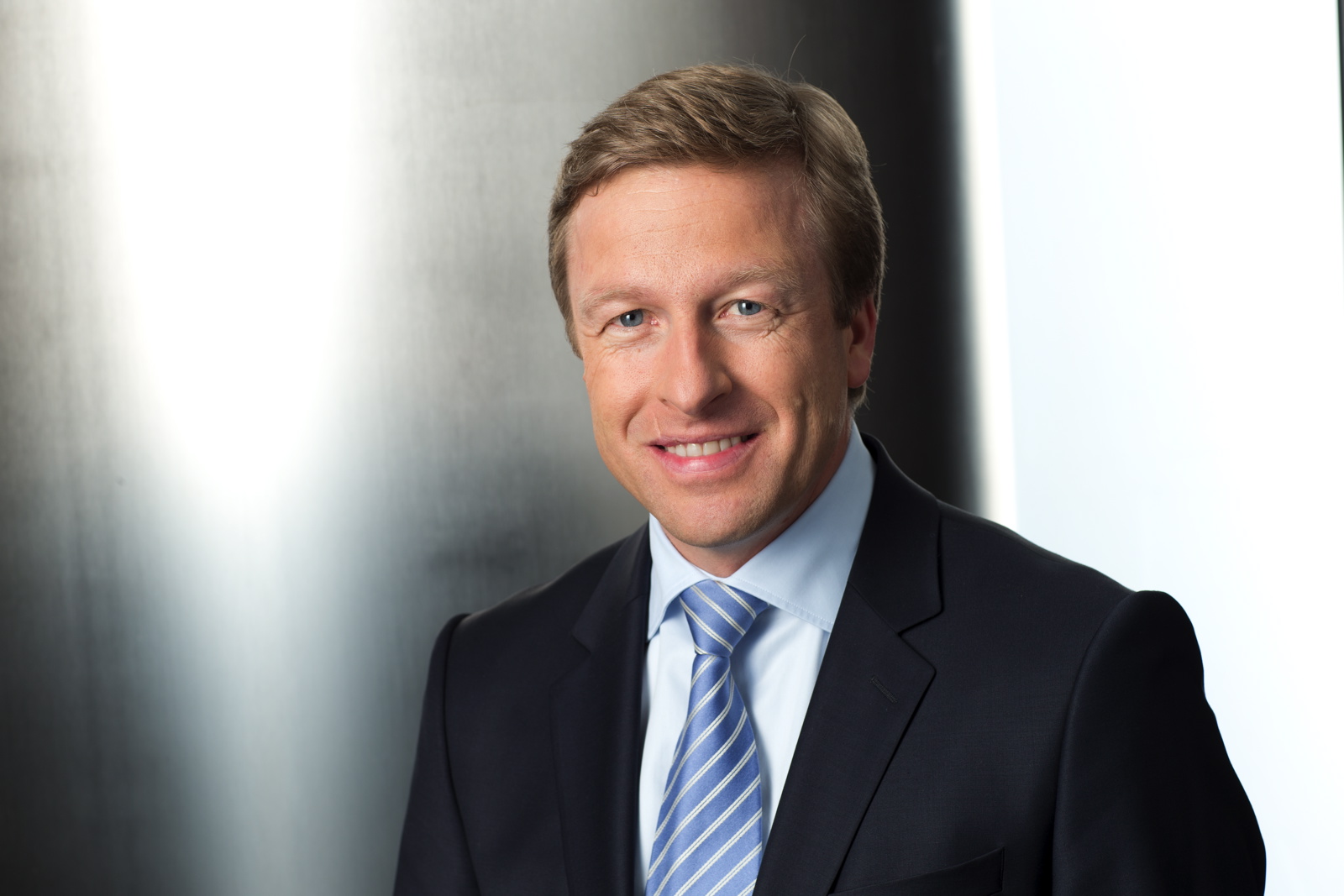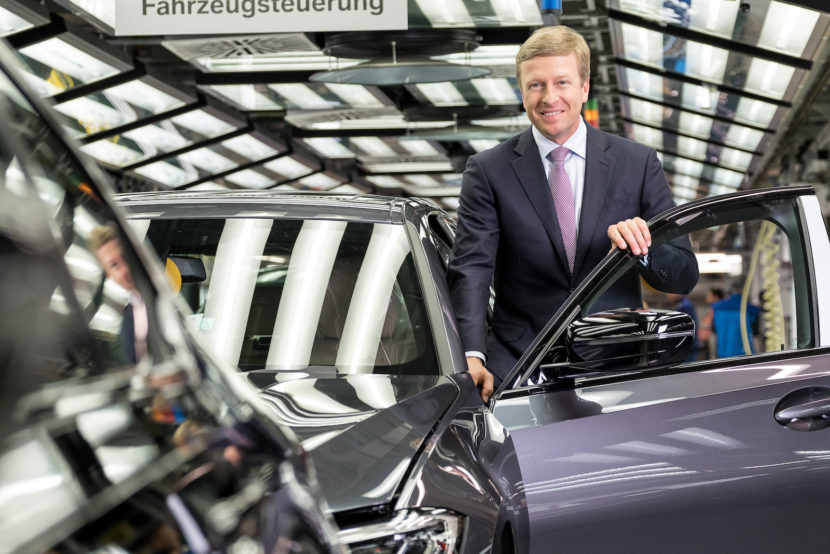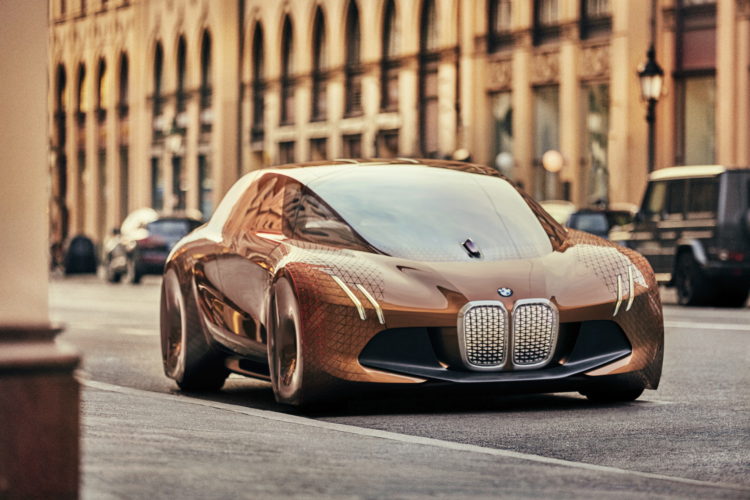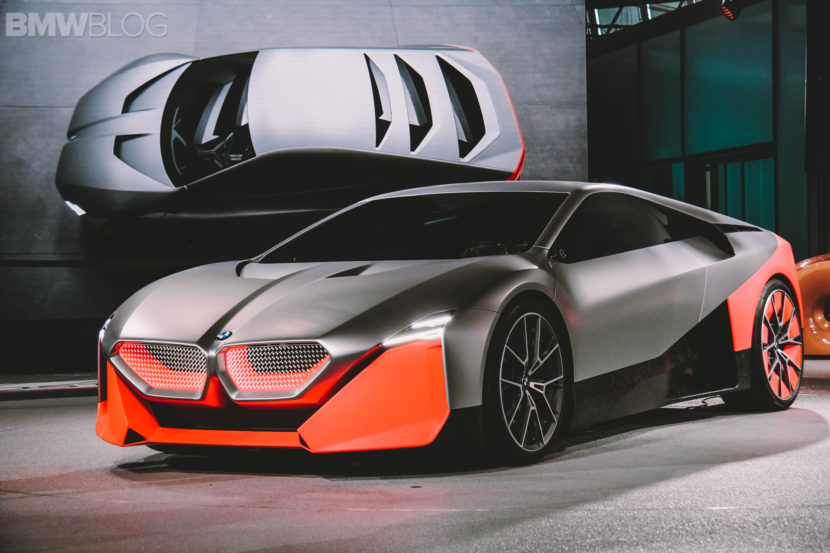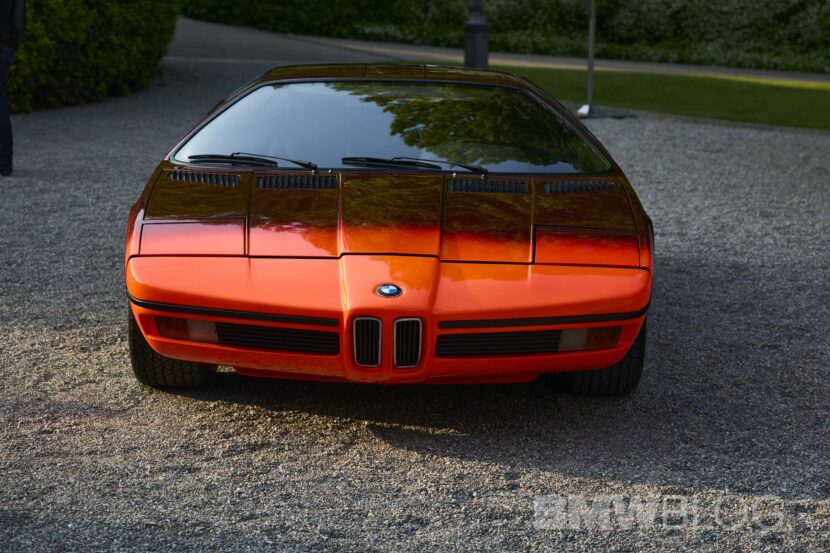In late June, we attended BMW’s first ever own autoshow, dubbed #NextGen. The one-day event was packed with many workshops, product launches and exclusive interviews with BMW board members and high-level executives. One of the interviews granted to us was with Oliver Zipse, at the time the board member responsible for the global production. In recent news, Herr Zipse has been promoted to the role of BMW Group CEO with a start date set for August 16th, 2019.
As you’d expect in today’s climate, the interview focused quite a bit on future mobility at BMW Group.
“We at BMW, we embrace this responsibility in all its complexity, out of conviction and also because it’s in our own interest, and that is not new because you’re sitting here,” Zipse told us. “You saw one car today – the i3 – that was designed in 2007, mainly out of the same logic that you need mobility, if you have mobility then it must be future proof, must be spiritual neutral, it must be electric,” added Zipse.
“BMW Group is firmly committed to the future and we support the aim of a Climate Neutral society. We know this is extremely difficult to achieve. But we, we say the aim is correct, is necessary to play an active part in keeping global warming, well below the two degrees Celsius, target as required by the Paris Climate Agreement.”
The future BMW CEO also spoke about the company’s proven record over its 100 years existence along with the ability to adapt and evolve, as often proven during their history.
Another clear message by Herr Zipse came in the form of the electric offense already put in motion in Munich. By 2021, BMW aims to increase their share of e-mobiliy by 30 percent per annum. The basis, of course, will always increase.
“By 2023 and not 2025 announced earlier, we will have 25 electrified models on the road, those are models that have a plug and a battery pack,” Zipse mentioned. “To achieve these goals, we will rely on technology, openness, while different technologies will continue to exist because currently there is no one single particular solution for all parts of the world.”
“This openness is the only way to focus equally on both present and future needs and remain profitable.”
The topic of future models came on quickly, so what we learned was that in 2030, the BMW Vision Next 100 Concept introduced three years ago will represent the future of individual mobility. In the mean time, Zipse promises lots of new tech in the 2021 BMW iNext while the future of the M brand is represented by the M Next Concept.
Flexibility inside the plants and on the production lines was another interesting topic. In a recent visit to the BMW Plant in Munich, I was given a tour of the production process (more on that shortly) showcasing how the company is preparing for EV, PHEV and ICE models running on the same lines. Herr Zipse also touched on this subject.
“We don’t have any specific factories for electric vehicles. I don’t think that’s necessary. If you look at the technologies in production, they’re not so different. In the body shop, you can use different types of parts for specific models, then then you go through paint shop, which is the same as for any type of vehicle. And we traditionally build highly flexible assembly systems. For example, already today, in Regensburg, we manufacture 9 different models on one assembly line. So we have that type of flexibility for electro-mobility.”
The investment in BMW factories will continue in time though, but today, according to Zipse, BMW has a production cloud with every important production is fully digitalized already today and connected to Internet of Things architecture. So for older plants, BMW can implement the same strategy to modernize them at the same level as the new plants. The future BMW CEO says that you only need new plants for additional production and not for the change of the drivetrain architecture.
What about achieving higher profitability on electric cars when it becomes mainstream? Is there a target number of vehicles that need to be built?
“If if it wouldn’t be profitable, we wouldn’t build them,” Zipse said. “We cannot because we our stakeholders expect that and it’s not sustainable. “Electric mobility is a cost factor so in lower segments you need to look at not making the battery pack too big. That’s very expensive. But the more you scale, it’s not like other industrial goods, price might not come down. 80 percent of the value add in a battery is resources and not industrial content. And if you look at increasing battery capacity, you must be sure you can secure battery resources. Where you get the resources from is the important discussion – copper, lithium, etc. – so this is why we make long-term products where we buy the resources, we sell them to battery makers and they sell them to us. Yet, the more you scale, the costs might not come down.”
Another interesting point made by Zipse is that generally electric-mobility will make individual mobility more expensive.
Last point on the agenda was sustainability and the constant political focus on the car industry which over the last decade has constantly overachieved CO2 targets, in compare to shipping industries, for example, where things like cruise liners are still not very sustainable.
“It’s not frustrating,” says Zipse. “We’re doing our part, it’s measurable, it’s communicated. If I would be a hardcore environmentalist I would frustrated because I am not setting the full scene. So the pure focus on the automotive industry is not the best solution.”
With Zipse taking the reigns on August 16, we expect his first public appearance as the company CEO to happen at the 2019 Frankfurt Motor Show in September, and hopefully then, we will learn more about his plans for the future.


